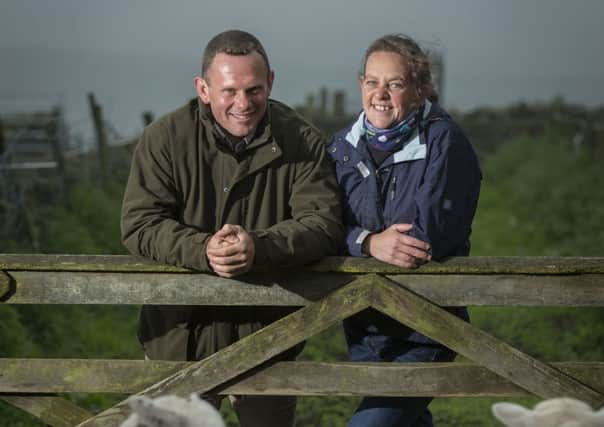Workshop shows how to profit in time and money


The sheep producers of Barnside Farm, Abbey St Bathans will explain the reduced cost system for running their flock of 800 Easycare ewes at a ‘Planning for Profit’ meeting in Dryburgh Abbey Hotel, St Boswells, Melrose .
Charley, 41, told us: “My message will be make a system that suits you, it’s horses for courses, I’m not suggesting my system is right for everybody, it works well for us. We measure profit in money and time: if we’re making time as well as money we’re pretty happy.”
Advertisement
Hide AdAdvertisement
Hide AdCharley was working on an estate farm in Lincolnshire when he started out running 30 ewes on the estate’s football pitch. The Walkers moved to Berwickshire to work for James Dobie in the late 1990s before taking on the tenancy of the 625-acre LFA Barnside and its Welsh Black herd, currently numbering 80, in 2001.
“We went from me being a shepherd/herdsman with a tied cottage and Andrea working part time on the farm and at the vets one week to the next week being tenant farmers, during FMD with 18 inches of snow and a child on the way. That was our break - working for the Dobie family and being lucky enough to become tenants here.”
The ‘Planning for Profit’ initiative, supported by the Scottish Government’s Skills Development Scheme, Quality Meat Scotland (QMS) and NFU Scotland, is aimed at assisting farmers to ensure their businesses are well-placed to operate profitably in the face of possible reduced support payments.
A Nuffield scholar, Charley will tell the meeting key factors have been adopting management lessons gained from his scholarship travels around the world, genetics from the UK, New Zealand and Canada and developing systems to cut production costs without significantly reducing productivity.
Advertisement
Hide AdAdvertisement
Hide AdFixed costs are reduced - the couple have no regular labour and no housing is needed for wintering or lambing - and variable costs are kept low through reduced concentrate use, no wool related tasks and no fertiliser use.
The wool shedding Easycare cross ewes have been bred up from Cheviot crosses and Romneys and no sheep will be less than 75 percent Easycare said Charley, adding: “It is essential ewes lamb and rear their progeny without assistance, they must be hardy and perform on grass.”
Any ewes which do not meet the above criteria are culled and their progeny not retained in the flock.
“I do miss the craic of the shearers but I can still get that if I go to my neighbours,” said Charley: “We did it because we wanted the flexibility to run sheep wherever.”
Advertisement
Hide AdAdvertisement
Hide AdHe rotates pastures and grow 40 acres of turnips. The flock starts lambing in late April. The first lambs are sold at weaning in August with most away by the end of November. The lambs are sold through Farmstock where over 90% make “very good” or “good” specification. Weights average 17kg to 19kg deadweight and grades R3L.
To book a place at today’s workshop ring 0131 472 4040.